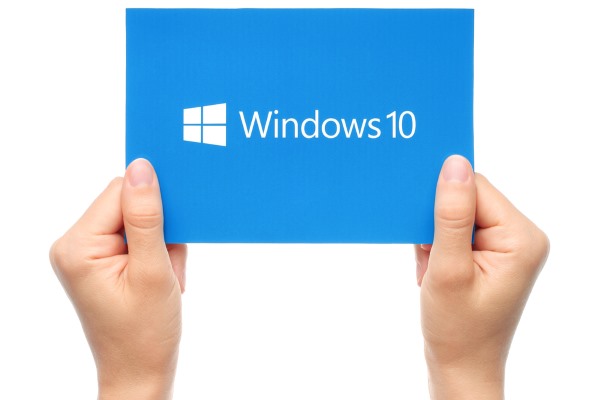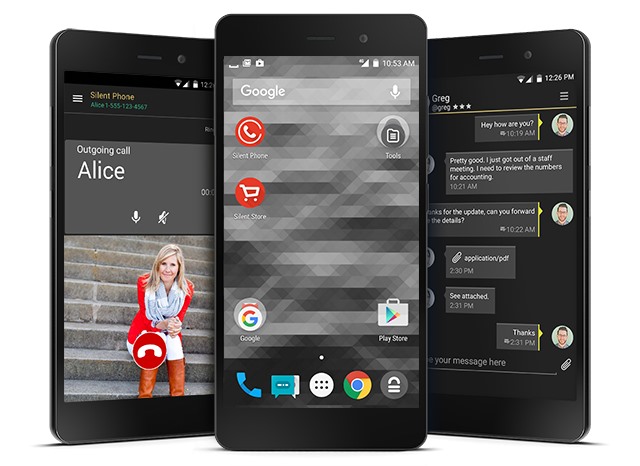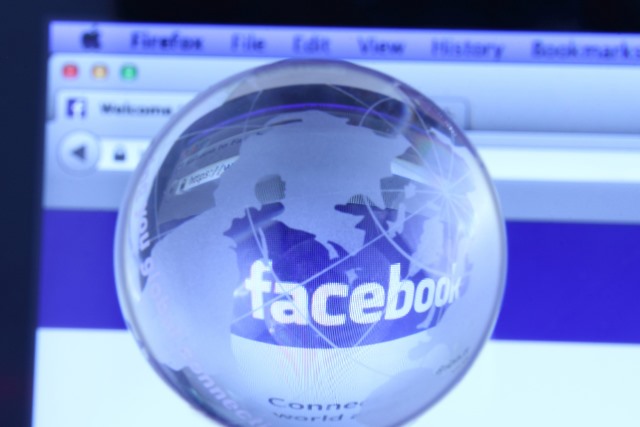
Edward Snowden would be willing to go to jail... if the US government would speak to him
Currently in exile in Russia, Edward Snowden recently joined Twitter to give him a public platform to communication with the world. With global interest in surveillance and privacy, the NSA whistleblower still conducts TV and newspaper interviews, and in a BBC interview he reveals that he would be willing to serve prison time.
He has even offered his freedom to the US government... but no one has responded to him. Praised and vilified in just about equal measure, Snowden faces prosecution under the Espionage Act for leaking documents about the activities of the NSA.

Facebook reveals mobile profile overhaul including video profile pictures
Facebook today announced a series of updates to user profiles on mobile devices, and one of the first candidates for a revamp is the humble profile picture. There are a couple of interesting options to play with, including temporary profile pictures that change after a certain number of days.
This is an idea that was born from the popularity of banners which Facebook users added to their profile pictures to show support for a particular cause. Also in the pipeline are profile videos, which Facebook says will "add a new dimension to your profile". Forget static images, a looping video clip is now an option. But the profile updates don’t end there -- and, oddly, iPhone users are first in line to try out the new goodies.

Tens of thousands of medical devices are exposed to hackers
Thousands of critical medical systems such as MRI machines, completely out in the open and vulnerable to a hacker’s attack, have been exposed online, the media reported on Tuesday.
According to a report by The Register, more than 68,000 medical systems from a "very large" unnamed US organization have been exposed. That institution has some 12,000 staff and 3,000 physicians, it says in the report.

AdBlock Plus to introduce independent board to oversee Acceptable Ads program
Ad blocking has been in the news quite a lot recently, not least because of iOS 9's new support for advertising avoidance. Perhaps the most famous tool in the arena is Adblock Plus. It's something that many people have become reliant on for cleaning up their online experience but Eyeo -- the company behind AdBlock Plus -- has been keen to encourage people to permit the display of some advertising through its Acceptable Ads program.
That companies can pay to bypass Adblock Plus is nothing new, although Adblock Plus insists that most ads that are deemed 'acceptable' are added for free. Today Eyeo announces that it is going to hand over control of the Acceptable Ads program to a completely independent board.

Edward Snowden is now a verified Twitter user
Former NSA contractor cum whistle-blower Edward Snowden is now officially on Twitter. Since blowing the lid on the surveillance activities of the NSA and sparking on-going global debate about privacy, Snowden has been a vocal campaigner for freedom of speech, privacy, and surveillance awareness.
Within hours of joining, Snowden -- who managed to bag the @snowden handle -- had amassed over half a million followers, and the flow shows no signs of abating. After a few hours, Snowden has posted just 7 tweets; but more interestingly he is only following one account.

New IBM partnership delivers improved communications compliance
Additional reliance on social network platforms and social communication channels creates regulatory issues for enterprises.
This means that social media and communications content are becoming an increasingly popular target of opposing counsel in legal issues involving eDiscovery.

Apple publishes praiseworthy, plain-speaking privacy policies
Perhaps inspired by the backlash Microsoft has faced over privacy concerns in Windows 10, Apple has published its own privacy policies on a new page that's designed to be easy to read. Written in plain English, the site sets out Apple's position regarding privacy in OS X and iOS. As well as touting the steps to which the company goes to protect its customers' privacy, Apple also uses the documents to trumpet numerous security features.
This is Apple riding the waves of interest concerning privacy, using it as an opportunity to get one over the likes of Microsoft and Google. There are promises of "telling you up front exactly what’s going to happen to your personal information and asking for your permission" as well as the offer that "if you change your mind later, we make it easy to stop sharing with us". Sounds great in theory, but does it stand up to scrutiny?

Accepting Microsoft's Windows 10 privacy stance at face value is sheer folly
Yesterday, Microsoft's Terry Myerson defended how the company has handled privacy in Windows 10. The level of concern about privacy in Windows 10 is unprecedented -- it even has some torrent sites spooked -- but my colleague Brian feels that Microsoft has, somehow, earned our trust. He is wrong.
Microsoft has broken the trust of many users, and Myerson's post does little to patch things up. In reality, it is an exercise in public relations, spin, and misdirection. It also raises more questions than it answers. In particular, it highlights the obnoxious disregard Microsoft appears to have for home users.

Microsoft deserves our trust with Windows 10 privacy -- the company earned it
Windows 10 is the best operating system to ever come from Microsoft. I have single-handedly installed it on many computers for myself, friends and family. I have no trepidation about using it or recommending it. With that said, I understand both consumers and pundits criticizing Microsoft over privacy setting in the newest Windows.
Can these settings be confusing for the average person? Absolutely. Should people blindly trust Microsoft? No, not blindly, but based on the company's track record, it has certainly done enough to earn our trust. If you are using a company's operating system, you have to have some level of faith in that company -- otherwise you should disconnect from the Internet or give up on computers altogether. Today, Terry Myerson, Microsoft's Executive Vice President of the Windows and Devices Group, attempts to quell privacy fears regarding Windows 10. You know what? His explanation seems honest and sincere.

Silent Circle's Blackphone 2 is the most secure Android phone available
With all of the talk about the iPhone 6s and 6s Plus, and the likes of the Samsung Galaxy S6 edge+, it's easy to forget that there are some genuine alternatives out there. One such smartphone is the Blackphone from the privacy-centric Silent Circle. The original Blackphone caused great excitement, and now the Blackphone 2 is available.
This is a phone that has been built from the ground up with security and privacy in mind. While the Blackphone 2 will appeal to anyone who is concerned about privacy, this time around there is a greater push to appeal to businesses and enterprise, including joining Google's Android for Work program. In terms of specs, opting for the most secure handset on the market does not mean making compromises: this phone is a beast.

Leaked documents show UK Karma Police program was just as intrusive as the NSA -- and spied on the US
There have been countless stories about the activities of the NSA and the revelations by Edward Snowden continue. A new batch of documents leaked by the former NSA contractor show that GCHQ ran a program called Karma Police that was used to "build a web-browsing profile for every visible user on the internet".
If that sounds a little sinister, that's because it is. You would think that we might have become hardened to this sort of thing, but it is still comes as a slight surprise to learn of the extent of surveillance that has been taking place. The UK government has been building profiles of web users around the world based on their browsing histories (news, porn, social networking, and so on), monitoring email and Skype communication and more for the last seven years.

Belgium believes Facebook is as bad as the NSA for spying
Belgian Privacy Commission (BPC) said during a court hearing earlier this week that Facebook is spying on its users in Europe. The American social media company is allegedly violating privacy laws, monitors information of non-users and logged-out users, all for the purpose of placing ads, IB Times just wrote in a report.
This is a developing story which started in April this year, when the Centre of Interdisciplinary Law and ICT at the University of Leuven in Belgium claimed the social network’s privacy policy violates European Union laws.

People trust governments with their data, but not private companies
Here’s a plot twist: despite everything that’s been going on with governments spying on other governments and people, despite countries looking to ban encrypted communications apps and generally fighting against encrypted communications, people still trust the government with their data more than private service providers.
Those are the results of a survey made by secure Swiss-based data center provider Artmotion. It surveyed more than 1000 citizens in the US, Europe, Russia and Australia.

Facebook and other social networks no longer have to reveal terrorist discussions to US government
Government snooping into online activity is something that has long appalled privacy groups around the world. In something of a victory for those concerned about privacy and government meddling, the US Senate has killed plans that would have required social networks to tell the government about any users talking about terrorism-related topics.
The change of heart is a win not only for social network users, but also the social networks themselves who will no longer be required to police content more than they already do. The policy had been criticized for being vague, placing undue pressure on companies, and limiting freedom of speech.

India drops insane encryption policy
The Indian government has performed a U-turn on a proposed encryption policy. Draft papers showed that the plan was to require people to store non-encryption versions of any data they have encrypted.
The draft policy was an all-encompassing one, and this led to a vocal backlash from users of social networks and messaging tools. The Indian government was forced to backtrack somewhat, making it clear that social media would be exempt and indicating that there is still a great deal of work to be done on the policy.
